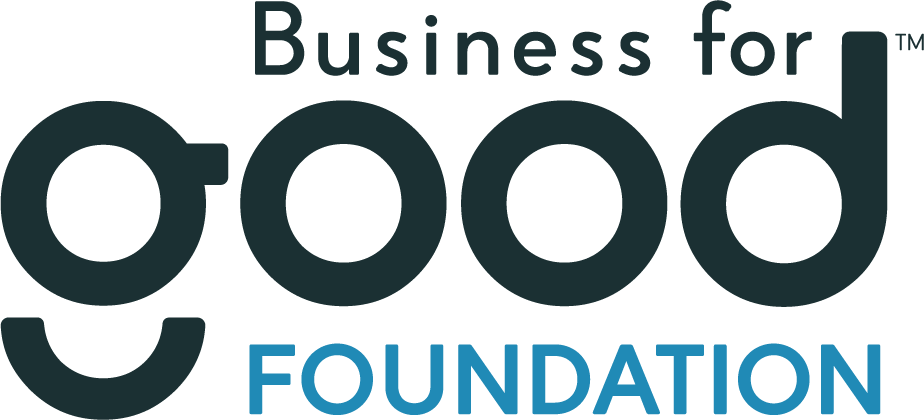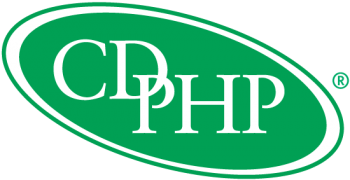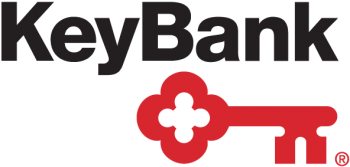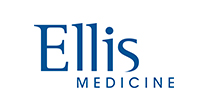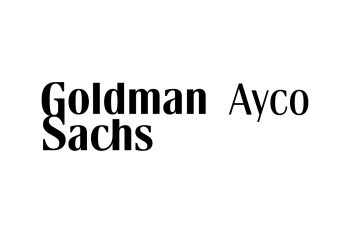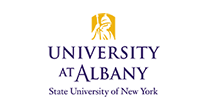News
March 22, 2017College Presidents Urge Lawmakers to Treat All Students Equally
The Board of Trustees of the Commission on Independent Colleges and Universities (CICU), the statewide membership association for the 100+ private, not-for-profit colleges and universities in New York State, today urged lawmakers to reject any proposal that will do harm to public or private institutions. Although well intentioned, such a proposal threatens the equilibrium of private and public institutions in New York. Alternatively, an expansion of the Tuition Assistance Program (TAP) will protect student choice while making college more affordable for all students
For every $1 in TAP that a student brings to a private college, those colleges provide $23, on average, in financial aid directly from their own funds, according to an analysis by CICU of federal and state data. The offer of “free” tuition would place students who want to attend a private, not-for-profit college or university at a distinct disadvantage. Mary Beth Labate, the president of CICU notes, “It is important that New York State continue its tradition of assisting students at the higher education institution of their choice that best fits their education, social and career needs.”
A study by Georgetown University’s Center on Education and the Workforce concluded that “free” tuition could cause private, not-for-profit colleges and universities to see a drop between 7 and 15 percent in enrollment.
Below are statements from members of the CICU Board of Trustees:
Executive Committee
- Long Island University (Brooklyn, Brookville, Brentwood, Orangeburg, Purchase, Riverhead) President Kimberly R. Cline, Chair of the CICU Board of Trustees, said, “As a former SUNY vice chancellor and CFO who now leads a private university, I understand the value of having strong public and private choices to meet all students’ needs. New York has a proud history of treating all students and both public and private universities equally, which is how we became a global leader in higher education. By expanding TAP, lawmakers can build on New York’s higher education leadership, preserve student choice and help make college more affordable for all students.”
- Union College President (Schenectady) Stephen Charles Ainlay, Vice-Chair of the CICU Board of Trustees, said, “All of us at Union College, the first college or university to be approved by the NY Board of Regents in 1795, share concerns about access and affordability. However, the ‘free tuition’ proposal in the Executive Budget is not the best way to address these concerns. New York has long held the view that students and their families should be able to choose the best schools for pursuing their dreams and aspirations. An enhanced Tuition Assistance Program (TAP) is a more effective way of addressing access and affordability while preserving choice. This approach also protects the economies of those towns and cities that depend on the economic impact of private institutions. Union, for example, is what has been called an ‘anchor tenant’ in Schenectady and it contributes to the economic well-being of the Capital District as well. Union alone contributes almost $300 million to the Capital District’s economy and generates nearly 2,000 direct and indirect jobs. Enhancing TAP, as opposed to pursuing ‘free tuition’ to SUNY and CUNY schools, preserves regional economies, provides students choice, and protects the strengths of New York’s higher education system — public universities, private colleges and universities, and community colleges.”
- Pace University (Manhattan, Pleasantville, White Plains) President Stephen J. Friedman, Secretary of the CICU Board of Trustees, said, “Private colleges and universities award more bachelor’s degrees annually than SUNY and CUNY combined, including more than 80,000 students who receive state aid through the Tuition Assistance Program. We are fully supportive of raising the maximum TAP award and household revenue threshold but it is inexcusable to hurt lower and lower-middle income students who choose to attend a private university by excluding them from this program. College is not a one-size-fits-all decision, it is about choice, all students deserve to attend a university or college that is the best fit for their needs.”
- Rochester Institute of Technology (Rochester) President William W. Destler, Treasurer of the CICU Board of Trustees, said, “Access and affordability are critical issues students and universities throughout New York state face each year. This academic year RIT is awarding $171 million in institutional scholarship grant aid to our students in addition to the $7 million that they are receiving through the state’s Tuition Assistance Program (TAP). The TAP Program has been a key source of support for New York families for over 40 years. Expanding TAP by increasing the maximum award to $6,500 and the minimum award to $1,000, and raising the income eligibility threshold to $125K is the best way to help New York students achieve greater access and meet college costs.”
At Large
- Daemen College (Amherst) President Gary Olson said, “The Governor’s so-called ‘free tuition’ proposal demonstrates a lack of concern for over half of the college-age students of New York and for the well-established balance between public and private higher education in the state. Much better would be to invest additional funds into the Tuition Assistance Program so that all of the state’s college-age students will benefit.”
- Helene Fuld College of Nursing (Manhattan) President Wendy Robinson said, “As an independent, not-for-profit institution which serves a predominately African-American and Hispanic population, Helene Fuld College of Nursing offers educational opportunities to men and women who heavily rely upon financial assistance to become registered nurses. Due to the already high competition for a limited number of seats in SUNY and CUNY nursing programs, the Excelsior Scholarship plan will make it more difficult for individuals to enter healthcare professions because it is expected that more students will be competing for the relatively few seats in government-supported programs. This would be occurring at the very time when nurses are retiring in large numbers and a nursing shortage is anticipated. We strongly support letting the dollars follow the student so that New York State’s healthcare needs are adequately met; especially for individuals who live and work in traditionally underserved areas.”
- Le Moyne College (Syracuse) President Linda LeMura said, “This so-called ‘free’ program will have a negative impact on taxpayers, students and the state’s economy. Taxpayers will be burdened with the still-unknown costs associated with this proposal (moving more students to the public sector), and students will be discouraged from selecting the college that best fits their needs. Additionally, the economy of towns and cities throughout New York State will be impacted by the loss of jobs and tax revenue related to fewer students attending private institutions in their communities.”
- Molloy College (Rockville Centre) President Drew Bogner said, “While we applaud the Governor’s attempt to make college more affordable, we believe the best option would be to expand the Tuition Assistance Program (TAP). TAP provides financial assistance toall the students in New York State, not just those at public universities, and this option would also prevent the destructive loss of thousands of jobs throughout the state that would result from the implementation of the Excelsior program as it is currently designed.”
- Sarah Lawrence College (Bronxville) President Karen R. Lawrence said, “Access and affordability are among the highest priorities at Sarah Lawrence College, and that includes affordability for the 20% of our undergraduates who are residents of New York. As currently envisioned, the Excelsior program is a one-size-fits-all solution that would require its beneficiaries to attend already overcrowded public universities. There is another, more equitable solution: increase TAP eligibility and award amounts for all New Yorkers including those interested in attending one of the State’s remarkable range of quality private colleges and universities.”
- John’s University President (Queens, Staten Island) Conrado M. Gempesaw said, “If students in private institutions fit the same academic and financial profile as those students in public institutions who will benefit from the free tuition proposal, we request that these students be given the opportunity to avail of such assistance. Increasing state supported financial aid like TAP that could be used at any not-for-profit institution would be a fair and equitable use of taxpayer resources. Promoting public policies that shift enrollment from private colleges to public institutions will have negative consequences on enrollment, college choice, student success, and jobs at private institutions as well as the communities in which they are located.”
- Lawrence University (Canton) President William L. Fox said, “This is all about choice. Expanding New York state’s existing TAP gives students an incentive to participate actively in the educational experience, think carefully about how education advances their career goals, and strive for opportunities to make a positive impact on our society. By expanding TAP, lawmakers would ensure that New York families continue to have a choice in where they attend college and would foster access to the diversity and high academic standards of all of New York’s colleges and universities — both public and private.”
Trustees
- Canisius College (Buffalo) President John J. Hurley said, “For decades, TAP has been the essential element in balancing the playing field in higher education in New York state. TAP provides New York students with the ability to choose the school that best fits their needs. It recognizes the enormous contribution of the colleges and universities in the independent sector have made and continue to make in the education of New York residents. The “free tuition” proposal will be unfair to students in the independent sector in New York. It would be devastating for private institutions in New York and it will ultimately be bad for New York taxpayers.
- Council of Governing Boards Secretary and College of Mount Saint Vincent (Riverdale) Trustee Stefano Acunto said, “‘Free’ tuition simply isn’t. The problem that this idea attempts to address has already been solved by independent colleges like the College of Mount Saint Vincent efficiently, advancing the income producing ability of students from lower income levels consistently and cost effectively since our founding. Competing with publicly subsidized colleges is fine on any level except financial, where taxpayers will be asked to fund an experiment that will undo a successful, non profit sector.”
- Council of Governing Boards Vice-Chair Diane Ciccone said, “New York State is home to some of the world’s best colleges and universities and any student, regardless of means, should be able to access the campus that will help them best fulfill their goals.”
- Council of Governing Boards Chair and Hofstra University (Hempstead) Trustee Arthur J. Kremer said, “All students in New York State should be treated fairly and their needs recognized.”
- Hartwick College (Oneonta) President Margaret Drugovich said, “The Excelsior ‘free college’ proposal that promises to provide greater access will not offer free college nor expand opportunity for students who truly need state financial support. NYS taxpayers currently provide almost $9000 in support per SUNY/CUNY student, while funding less than $700 in support per NYS student who enrolls in a private New York college. This program will cost New York state taxpayers more, will overwhelm the SUNY/CUNY system, will weaken the private sector, and will deny the current freedom of choice that allows students to take state support to their New York college of choice, whether that choice be public or private. The unintended consequences of this proposed program will be an unwelcome surprise for the students who want an affordable education, and for the communities that currently host thousands of students through their enrollment in New York private colleges.”
- Iona College (New Rochelle) President Joseph E. Nyre said, “We applaud the Governor’s, and New York state’s, increasing focus on college affordability and support the expansion of the Tuition Assistance Program (TAP). This is a meaningful step forward for all New Yorkers. Conversely, we are deeply concerned about the unintended negative consequences of the well-intended Excelsior Scholarship proposal that unfortunately will: (1) reduce college choice for students; (2) devalue the $5 billion annual contribution to student scholarships by private colleges and universities; (3) diminish the amazing faculty and staff who work earnestly to support students across the great State of New York; (4) negatively impact New York’s economy; and most importantly, (5) negatively affect the very students and families the legislation is trying to support.”
- Mercy College (Dobbs Ferry, Manhattan, Bronx, Yorktown Heights) President Timothy L. Hall said, “The governor’s proposal for ‘free’ public college in New York departs from a longstanding public/private partnership between the state and its private colleges. It disadvantages private college students and the institutions serving them and will inevitably harm local economies in which private institutions are robust partners. It puts private college students—many of whom are low income, first generation, or minority students–to the choice between chasing “free public college” or remaining with less state financial support in an environment of smaller classes and more academic supports. While the proposal appears progressive, it would actually represent a large step backward for higher education in New York. The main goals of the proposal are better served by expanding TAP eligibility.”
- Roberts Wesleyan College (Rochester) President Deana Porterfield said, “Roberts Wesleyan College supports greater access and affordability for all students but believes the current Free Tuition Proposal for New York would negatively impact the economic structures of many communities. Roberts alone provides over $114M in economic impact within the local community and employs 830 (direct and spillover). It is hard to imagine the negative economic impact across the state if all 100+ independent institutions saw dramatic shifts in enrollment and employment. New York can continue to be a leader in Higher Education by reinforcing the strong historical partnerships by supporting both public and private institutions, and student choice across the state.”
- Siena College (Loudonville) President Br. F. Edward Coughlin said, “Affordable college education should be a priority for all New Yorker’s. At Siena, we have worked hard to keep the education of a lifetime accessible to all students. The median income for our families is $100,600, and the net cost to attend has dropped nearly 7% from 2011 to 2016. Over the same time period the amount of state aid has decreased. Siena students – and their counterparts at other private colleges – are a great investment. Collectively, New York’s private, not-for-profit colleges have higher graduation rates and lower student loan default rates than their SUNY counterparts, and we combine to generate nearly $80 billion in economic activity across New York. Free tuition isn’t free – New York State already spends $8,830 annually for each student enrolled at public colleges and universities, 10 times the cost to the state for a private, not-for-profit education. The Governor’s proposal, while well-intentioned, will have a devastating impact on the private, independent sector. The estimated 11% enrollment drop could result in 45,000 jobs being lost across the state, and that’s a risk none of us can afford to take.”
- Joseph’s College (Brooklyn, Patchogue) President Jack P. Calareso said, “Since its founding a century ago, St. Joseph’s has made affordability and access to a world-class college education a reality for tens of thousands of students. The expansion of the Tuition Assistance Program (TAP) is the best vehicle to continue and advance our mission as it will preserve the long-standing tradition of enabling students and their families to choose the college or university that is the best fit for them.”
- Wagner College (Staten Island) President Richard Guarasci said, “Making all colleges affordable and accessible to all NY residents requires giving them choice. Increasing tuition assistance program and income eligibility to the level of SUNY tuition would keep all of our NY colleges and universities robust as engines of economic progress for all taxpayers.”


